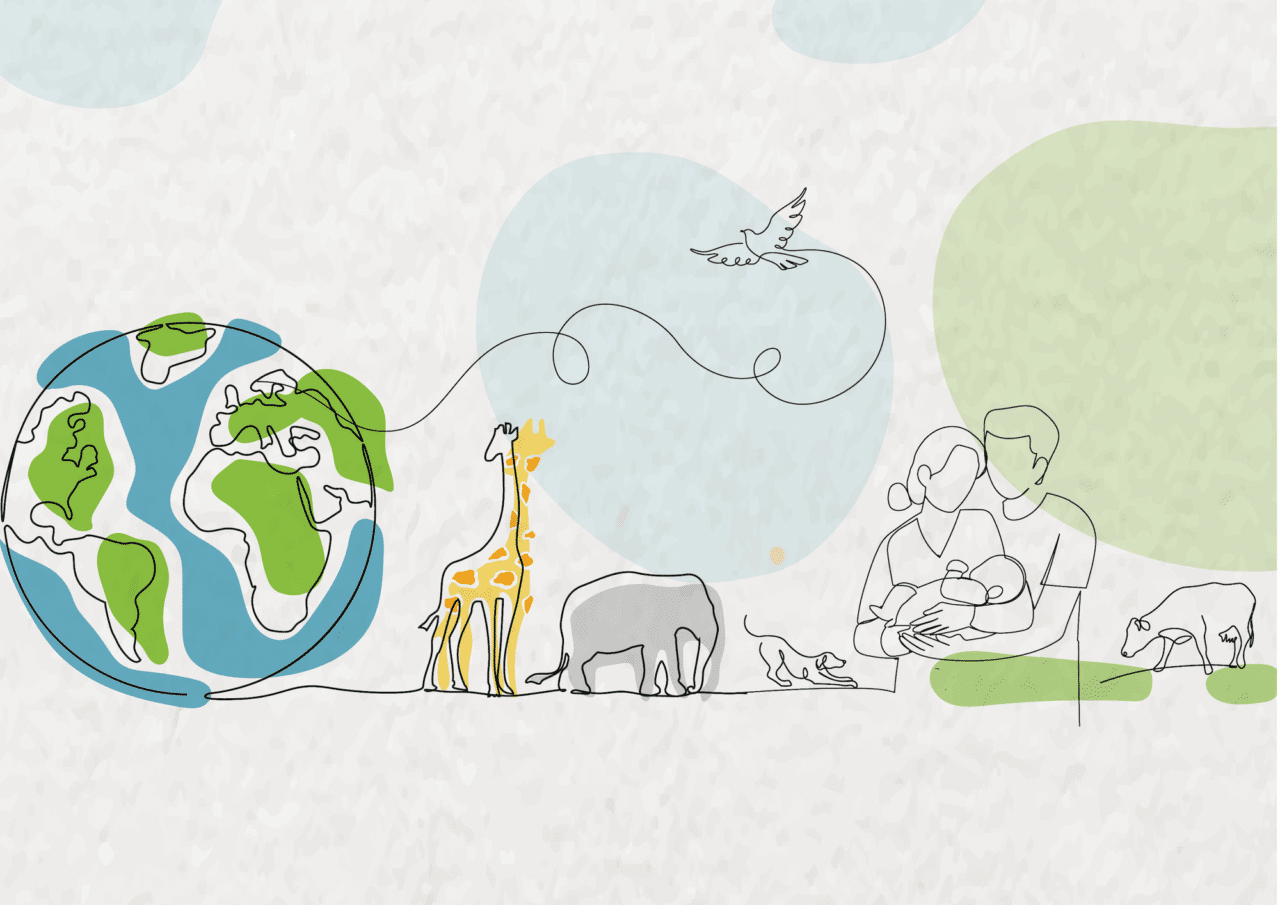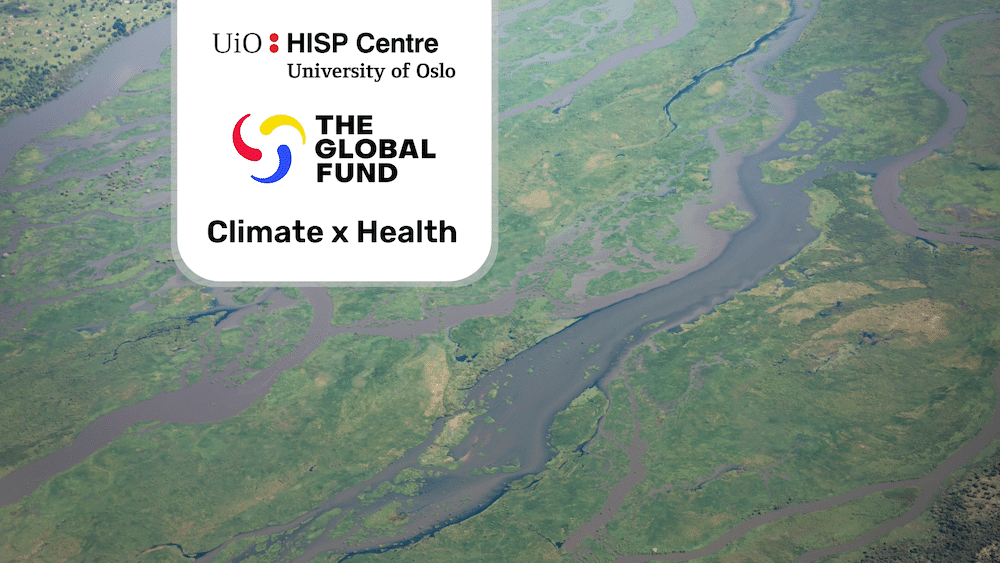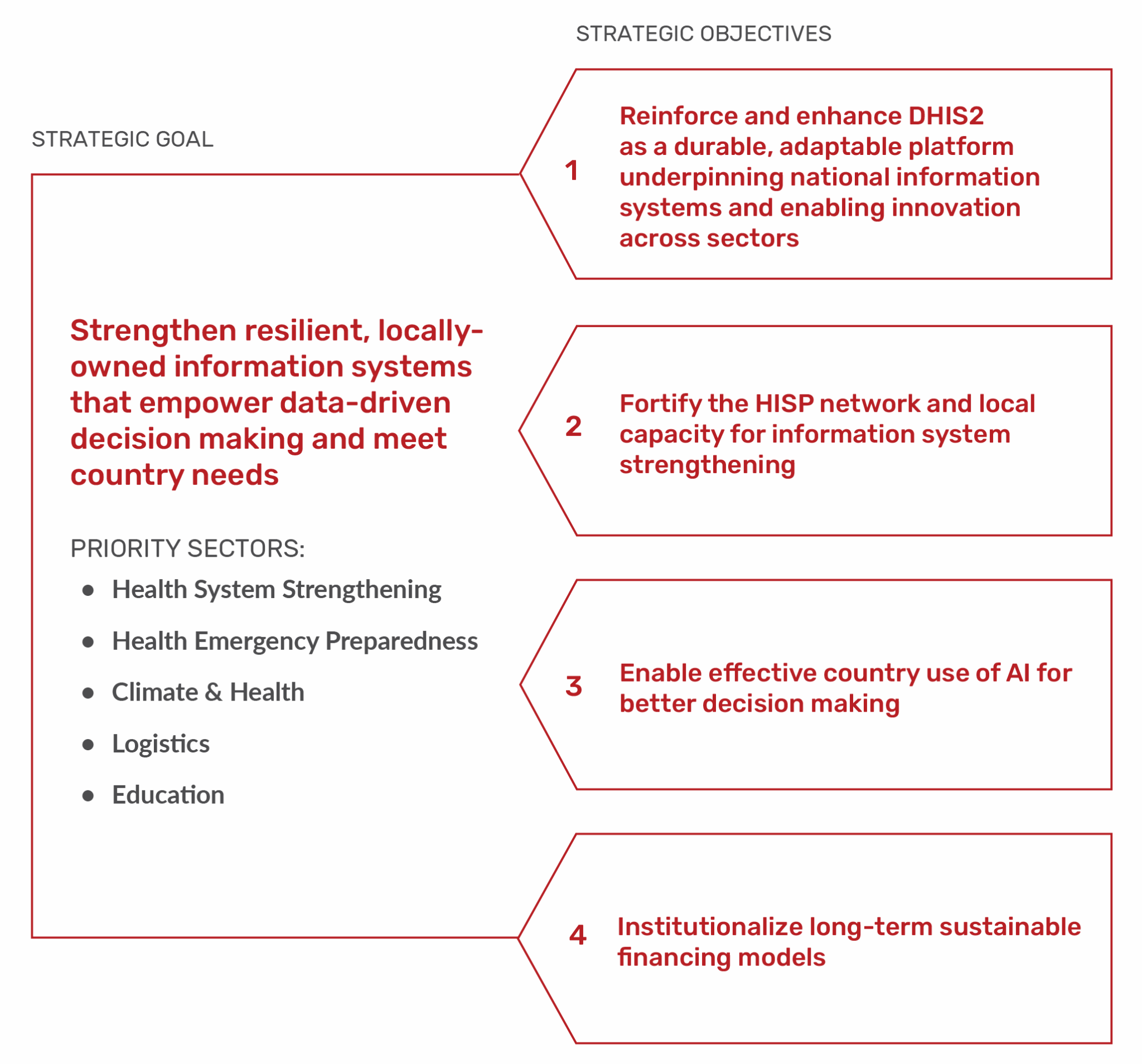
DHIS2 featured in Africa CDC’s Climate Change & Health strategy
In its new Climate Change and Health: Strategic Framework 2025, Africa CDC identifies key initiatives leveraging DHIS2 systems in 55 African Union member states to support evidence-based decision-making in climate and health
In July 2025, the Africa Centres for Disease Control and Prevention (Africa CDC) published Climate Change and Health: Strategic Framework 2025, a comprehensive five-year roadmap designed to address the intersection of climate and health through coordinated, evidence-based actions.
This strategy responds to the far-reaching—and accelerating—impacts of climate change on human health, as Director General of Africa CDC Dr. Jean Kaseya observes in his foreword to the strategy. “Globally, climate change is projected to cause an additional 14.5 million deaths, over 2 billion healthy life years lost and $12.5 trillion in economic losses by 2050. In Africa, a review of the over 2,000 public health events between 2001 and 2021 indicates that 56% are linked to climate change,” Dr. Kaseya said. “Extreme weather events, shifting disease patterns, food insecurity, and waterborne illnesses are intensifying, posing significant risks to the health and well-being of communities.” Fostering climate-resilient health systems and communities has thus become a central part of Africa CDC’s mission to safeguard public health across Africa, from the continental policy level to the local level in the 55 member states of the African Union.
DHIS2 appears in Africa CDC’s strategic framework under the section on Research, Innovation and Data. The object of this area of work is to “strengthen research, innovation, and data integration in support of evidence-based decision-making in climate and health.” One of the specific initiatives identified under this goal is to support the integration of climate data into the DHIS2 platform by:
- Creating DHIS2 modules specifically designed to capture and analyze climate-related health data, such as data on vector-borne diseases and heat-related illnesses.
- Offering targeted training to health workers and data managers on utilizing climate data within the DHIS2 system.
- Implementing tools within DHIS2 that enable real-time climate-health data collection, enhancing timely responses to climate-driven health challenges.
- Developing protocols and validation tools to ensure the accuracy and completeness of climate-health data within DHIS2.
- Conducting workshops to align stakeholders on the strategic use of integrated climate data in health decision-making.
These initiatives are made possible by the recent innovations developed through the DHIS2 Climate & Health project. The new DHIS2 Climate App facilitates integration of climate, weather, and environmental data into DHIS2, where it can be automatically harmonized with health data. The Chap Modeling Platform and DHIS2 Modeling App offer powerful tools for developing, assessing, and running predictive models in DHIS2, supporting climate-sensitive disease forecasting.
The HISP Centre at the University of Oslo, which develops the open-source DHIS2 software platform and leads the DHIS2 Climate & Health project, collaborates with Africa CDC through a memorandum of understanding between Africa CDC and the Kingdom of Norway, and has provided technical support and capacity building on national DHIS2 systems in countries across the African continent through the HISP network. We look forward to supporting Africa CDC and our Ministry of Health partners in strengthening their health information systems to better understand, predict, and respond to the impacts of climate change.


